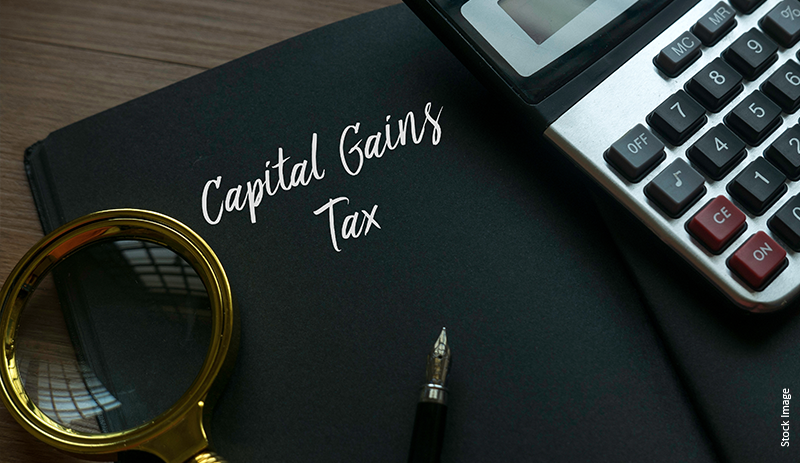30 January, 2024
4 mins read

Real estate is one of the most lucrative investment options in India due to the growth of the real estate sector. Owning a property in India is a sense of pride and with the boom in the property sector, it offers value appreciation, financial security, inflation leverage, etc.
Those looking to invest in real estate must be aware of the tax implications of the same. Capital gains tax is one of the factors that need careful consideration as it is applied when one sells a property for profit.
Capital assets are that assets generate income over some time. Assets can be movable or immovable. Capital gain means the profit or gain that investors earn from the sale of “capital assets.” Capital assets include:
Real estate is categorised as an immovable capital asset. Thus, if one earns a profit by selling his/her property, then that amount is liable to capital gains tax.
The tax on capital gains can be divided into two types depending on the time for which the investor holds it.
When a property is sold within two years from the date of purchase the profit earned will be considered as short-term capital gain for property. The amount earned will be added to the income of the individual and tax will be deducted along with the other incomes.
It is important to note that one cannot claim exemptions to save short-term capital gains tax.
When immovable property like houses, lands, etc., are owned for two years or more and sold thereafter, the profit earned on the sale is a long-term capital gain. Long-term capital gain attracts a 20% tax with indexation, known as long-term capital gains tax for property.
The profit on the sale of a property is calculated by reducing the sale price from the purchase price. However, for a property that is held for many years, it is unfair to ignore the inflation factor as it would result in increased profits.
Thus, indexation helps to calculate the purchase price of the property considering the inflation over the years. The indexed price of purchase is higher than the original price, leading to a reduction in long-term capital gains.
Short-term capital gains = Sale value - (Cost of purchase + cost of transfer + cost of improvement)
Long-term capital gain = Sale price - Indexed cost of purchase (indexed cost of purchase + transfer expenses + indexed cost of improvement cost)
One of the benefits of holding property for a long term (2 years or more) is that individuals are eligible for exemptions from real estate property gains tax under section 54 if the sale price is invested in purchasing a property (1 year before or 2 years after the sale) or constructing a new residential property(within 3 years of sale). This benefit is available only if the sold property is a residential one.
Here is an example to understand the benefit of section 54:
| Particulars | Amount (₹) |
|---|---|
| Capital gain on sale of property | 45,00,000 |
| The amount used to purchase/construct a new property (exempt from tax) | 30,00,000 |
| Capital Gains | 15,00,000 |
It is important to note that if the new property purchased or constructed is sold within 3 years of purchase or construction then the exemption claimed will be taxable in the year in which the new property is sold.
In case one is not able to find a suitable house within the stipulated time there are some other ways for individuals to save tax:
It can be understood from this article that individuals owning house properties must hold it for 2 years or more to reap the benefits of exemption under section 54. The new house property must be purchased or constructed within the stipulated time.
Those who wish to claim the benefits of exemption under section 54 can do so by investing in Piramal Vaikunth, the luxurious name for extravagant houses. Welcome to a house of dreams and fantasies with this prestigious property.
Disclaimer- This article is based on the information publicly available for general use as well as reference links mentioned herein. We do not claim any responsibility regarding the genuineness of the same. The information provided herein does not, and is not intended to, constitute legal advice; instead, it is for general informational purposes only. We expressly disclaim /disown any liability, which may arise due to any decision taken by any person/s basis the article hereof. Readers should obtain separate advice with respect to any particular information provided herein.
 Table of Contents
Table of Contents04 August, 2023
29 March, 2022
29 March, 2022